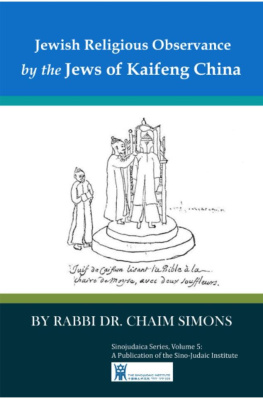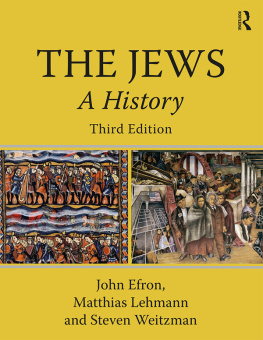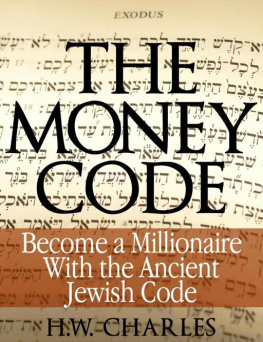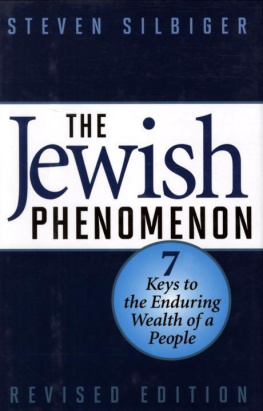LEGACY
LEGACY
A GENETIC HISTORY OF THE JEWISH PEOPLE
HARRY OSTRER


Oxford University Press, Inc., publishes works that further
Oxford Universitys objective of excellence
in research, scholarship, and education.
Oxford New York
Auckland Cape Town Dar es Salaam Hong Kong Karachi
Kuala Lumpur Madrid Melbourne Mexico City Nairobi
New Delhi Shanghai Taipei Toronto
With offices in
Argentina Austria Brazil Chile Czech Republic France Greece
Guatemala Hungary Italy Japan Poland Portugal Singapore
South Korea Switzerland Thailand Turkey Ukraine Vietnam
Copyright 2012 by Oxford University Press, Inc.
Published by Oxford University Press, Inc.
198 Madison Avenue, New York, New York 10016
www.oup.com
Oxford is a registered trademark of Oxford University Press
All rights reserved. No part of this publication may be reproduced,
stored in a retrieval system, or transmitted, in any form or by any means,
electronic, mechanical, photocopying, recording, or otherwise,
without the prior permission of Oxford University Press.
Library of Congress Cataloging-in-Publication Data
Ostrer, Harry.
Legacy: a genetic history of the Jewish people / Harry Ostrer.
p. cm.
Includes bibliographical references and index.
ISBN 9780195379617 (hardcover : alk. paper)
1. Jews. 2. JewsOrigin. 3. JewsIdentity. I. Title.
GN547.O88 2012
599.98924dc23
2011045114
1 3 5 7 9 8 6 4 2
Printed in the United States of America
on acid-free paper
For Lily, Isabel, and Nathaniel
ACKNOWLEDGMENTS
Clearly, I have benefited from the advice and support of many people, among them the physicians who introduced Tay-Sachs screening and nurtured my Columbia medical school classmate, Madeleine Harbison, and me to set up a Tay-Sachs screening program as our junior public health project in 1975Stephen Rosenberg, Michael Kaback, Charles Scriver, and Barton Childs. As a medical student, I took the graduate course in human genetics, and I found it so compelling that I took it a second time and then chose a career in human genetics. Among the faculty who taught me were Paul Marks, Richard Rifkind, Arthur Bank, Georgianna Jagiello, and Dorothy Warburton. As a resident and fellow at Johns Hopkins, I benefited from the mentorship of the geneticists Barton Childs, Haig Kazazian, Victor McKusick, David Valle, Barbara Migeon, and Kirby Smith. I still remember with great fondness the raging lunchtime conversations with Haig and Barbara. At Albert Einstein College of Medicine, I have benefited from the support of my colleagues, Edward Burns, Gil Atzmon, Bernice Morrow, David Reynolds, Michael Prystowski, Jan Vijg, and Allen Spiegel. At NYU School of Medicine, I benefited from the support of my colleagues, Carole Oddoux, Ruth Oratz, Freya Schnabel, Daniel Roses, John Pappas, Felicia Axelrod, and Lauren Carpiniello. My work has benefitted from the financial support of the National Foundation for Jewish Genetic Diseases, the Dysautonomia Foundation, the Jean Batkin Memorial Fund, the Littauer Foundation, Lola Finkelstein, Jack and Susan Rudin, the Lewis and Rachel Rudin Foundation, the Iranian-American Jewish Federation, the Shifrin/Myers Breast Cancer Discovery Fund and the David Himelberg Foundation. In the process of formulating my ideas about the genetics of Jewish peoples, I have profited from discussions with colleagues Neil Risch, Arno Motulsky, Mary-Claire King, Michael Hammer, Karl Skorecki, Doron Behar, Eitan Friedman, Bolek Goldman, Mordechai Shani, Susan Gross, David Goldstein, Neil Bradman, Batsheva Bonne-Tamir, Ariel Darvasi, Ann Pulver, Itsik Peer, Carlos Bustamante, David Reich, and Nick Paterson. Paul Marks alerted me to the importance of Chaim Shebas work and Werner Maas to the importance of Maurice Fishbergs work. Lawrence Shiffman, formerly Chairman of Jewish Studies at NYU and now Vice Provost for Undergraduate Education at Yeshiva University, has often been only a phone call away for setting me straight about Jewish history. Aron Rodrigue and Harvey Goldberg were also very generous in helping me to improve my knowledge of Jewish history.
My daughters, Lily and Isabel, and my late mother, Gloria, aided firsthand in some of my efforts to collect specimens and data from subjects, including members of my family or potential kin. My daughters, my son, Nathaniel, and my wife, Elizabeth Marks, showed remarkable patience, love, and support over the time that it took to complete this manuscript. My agent, Albert Zuckerman, and his wife, Claire, helped me to improve the narrative line. Although I started with a different editor at Oxford University Press, I was fortunate to have Joan Bossert and Chad Zimmerman assigned to me. Their support was critical for promoting the idea of a trade book in Jewish population genetics. Gordon Cook, my illustrator, was a can-do guy with a great eye and a great sense of humor.
CONTENTS
ONE
LOOKING JEWISH
TWO
FOUNDERS
THREE
GENEALOGIES
FOUR
TRIBES
FIVE
TRAITS
SIX
IDENTITY
PREFACE
In June 2010, I published a scientific article that demonstrated a biological basis for Jewishness.and expansions, conversions, and admixture with non-Jewish peoples. These observations were not casual, because the scientific reviewers of our manuscript, unknown to us through the peer review system of the American Journal of Human Genetics, required rigorous analysis through application of stringent statistical methods.
This publication that described the biological basis for Jewishness gained international press coverage and galvanized the public. When we started the study, our clearly stated goal was not to influence public opinion but, rather, to understand the origins and migrations of Jewish peoples. Some have suggested to me that I should seek financial support to promote a political agenda with population genetic analysis, but I have shunned the idea. Some of the commentators sought to rewrite our article for us, suggesting that we didnt get the history quite right or that our scientific methods were flawed. One commentator suggested that the genetic sharing that we observed between Ashkenazi and Sephardic (Southern European) Jews reflected greater than expected interchange and intermarriage between the two communities during medieval times. These investigators went on to characterize other Jewish groups that we had not. The tenor of the debate was turned up when this commentator told journalist Michael Balter that Hitler would have been pleased by our findings. Wow! Despite our considerable effort to use the most rigorous of scientific approaches, the discredited race science theories of the Nazis were cited as proof of our misguided behavior. This imputation of equivalence was morally objectionable, because we were not seeking to develop a hierarchy of human groups nor attempting to eliminate individuals on the basis of their having undesirable genes or traits, as the Nazis had. The comments were also uninformed, because human genetics has been moving at a rapid clip in recent years, requiring considerable effort even from human geneticists to keep up. Some commentators later pointed out to me that they were unsure what they had commented about. One even apologized for an insensitive and erroneous remark.
This overheated discussion in the press without dispassionate analysis of scientific observations proved to me that a popular book about Jewish population genetics might tone down the debate into a more thoughtful realm. Notably, it would be useful to review how Jews themselves were once promoters of race science theories that were based on few physical measurements and many preconceived notions. Later, Jewish geneticists championed the emerging field of population genetics but lacked the tools that have become available only in our times. Such books have been written in the past and, yet, none with the benefit of the contemporary methods of population genetics that have defined human populations with a degree of rigor previously unknown. Explaining these methods to develop a common lexicon for population genetics is important, so that commentators can judge the evidence for themselves before weighing in on the debate.
Next page









